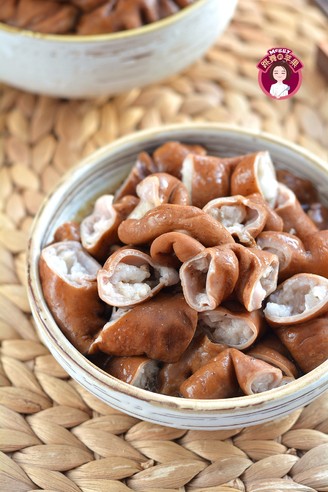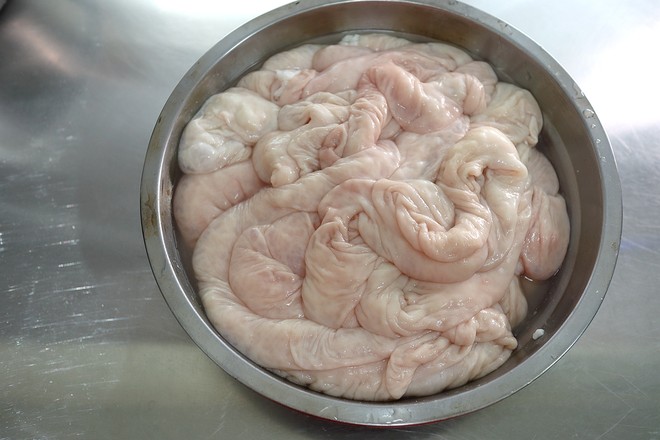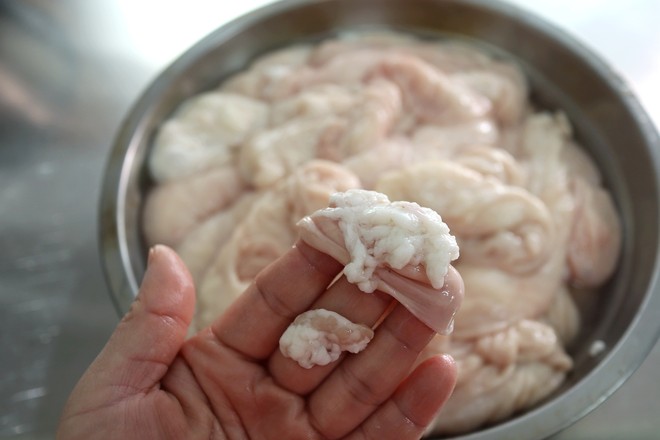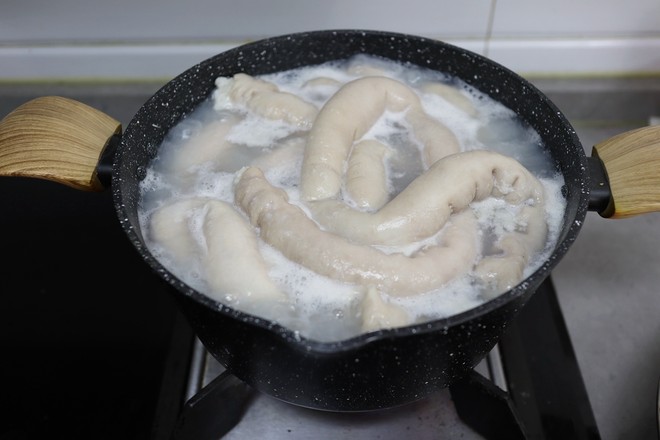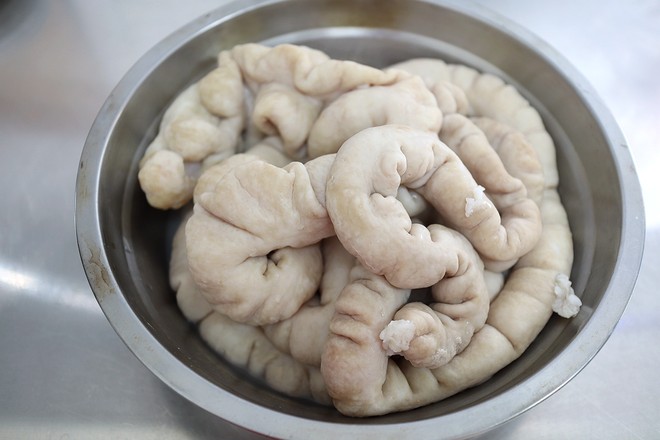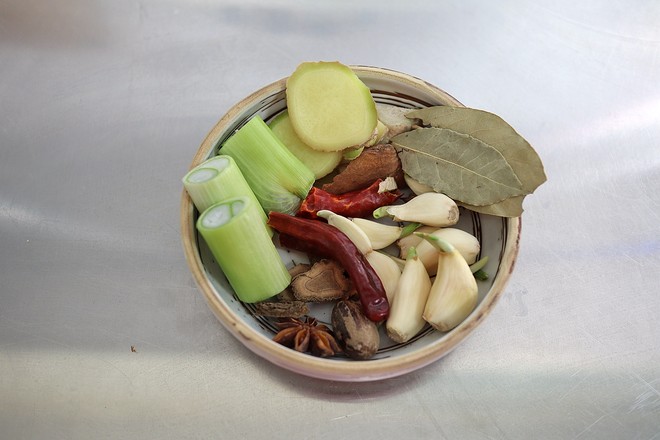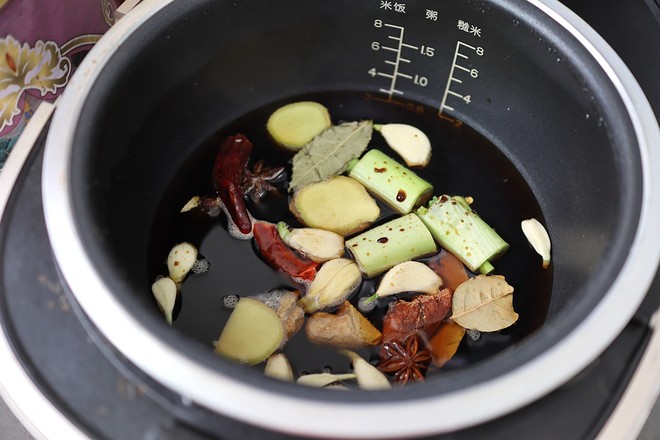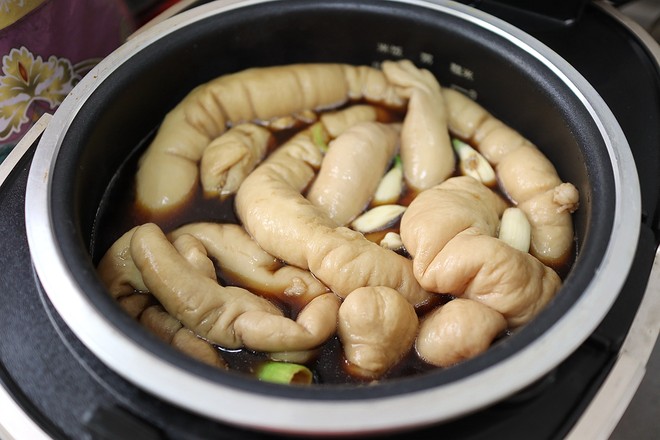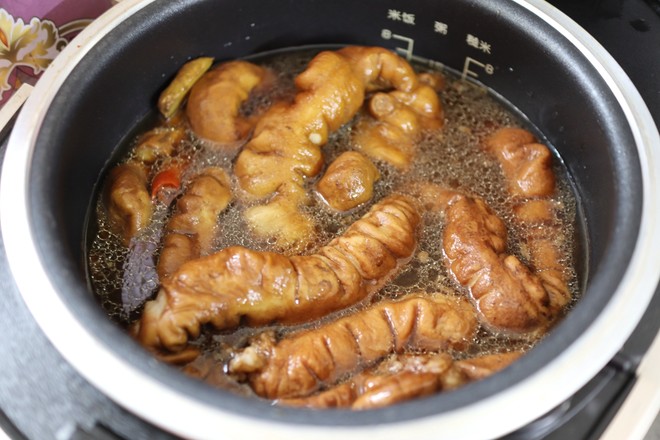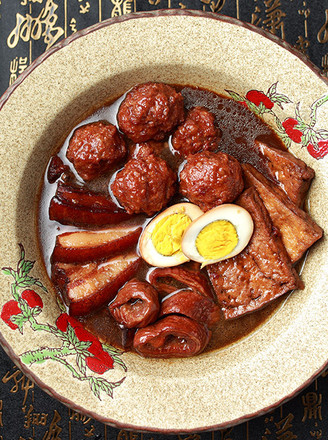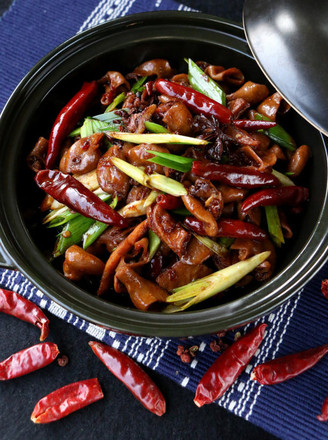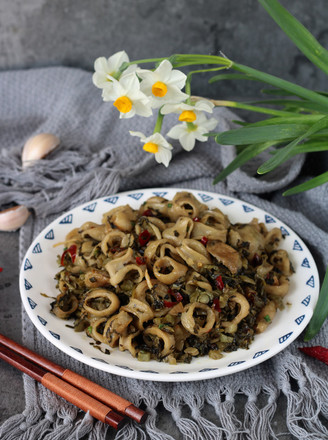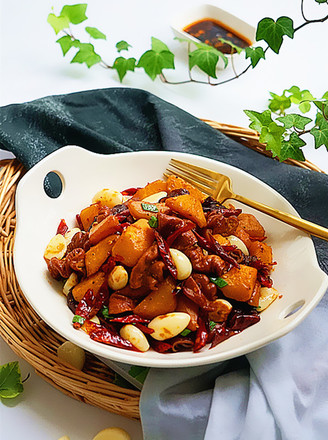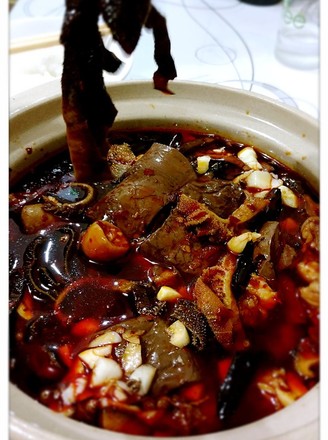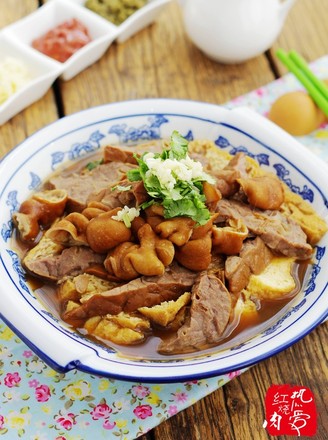Marinated Large Intestine
1.
Clean pig intestines: first rub the mucus on the intestinal wall with an appropriate amount of vinegar, then wash twice with water; put a handful of flour and an appropriate amount of cold water to rub, then wash twice with clear water; rinse the intestines with water once;
2.
Keep the net oil on the intestinal wall, remove the lymph nodes on it, don’t do it;
3.
Cut the large intestine into several sections, boil it in a pot of warm water, the intestine shrinks and changes color, remove it;
4.
The large intestine is placed in the basin to control water;
5.
Prepare the spices when blanching the large intestines, not limited to these: ginger, green onions, dried red peppers, garlic, star anise, cinnamon, bay leaves, grass fruits, etc.;
6.
Pour the spices, soy sauce, light soy sauce, salt, a little dark soy sauce, and an appropriate amount of water in the inner pot of the rice cooker in step 5, not too much water, first heat the sauce to warm;
7.
Put the large intestine into the juice and mix it slightly so that the large intestine can be submerged in the soup;
8.
Just select the "simmered rice" program, and the time is up to soak in the intestines for half an hour, remove the cuts and pour a little juice to eat.
Tips:
1. The large intestine should be repeatedly rubbed and cleaned before cooking, which can effectively remove the strong visceral smell; in addition to the whole raw large intestine, there are also semi-finished and finished braised large intestines to choose from;
2. Don't pull off all of the large intestine oil, it is delicious, but there are lymph nodes hidden in the oil, and there are viruses in the lymph nodes, so you must pull it off and throw it away;
3. The large intestine can be boiled to remove most of the organ smell, and the finished soup after marinating is not fishy, it can be used as a sauce or a stew;
4. Although the large intestine is delicious, it contains more cholesterol and fat, so eat it in moderation.

